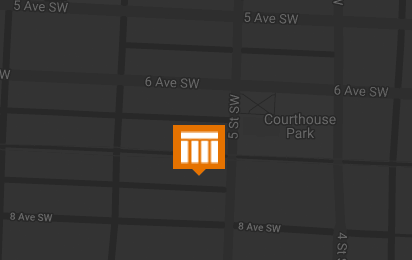Publication
The Law On Dao (Decentralized Automated Organizations)
Blockchain technology is transforming the world around us. It is an innovation platform with countless potential applications that can change all aspects of our lives. Unfortunately, with change comes challenges and uncertainty, which can be particularly difficult when it comes to uncertainties with law. For entrepreneurs, it can be particularly frustrating to push forward while feeling like the uncertainties of law are holding them back. This has been the case with the application of securities laws to cryptocurrencies and other crypto-assets, and it seems to be the case with decentralized autonomous organizations (DAO).
What is a DAO? A DAO is a self-governing organization or community of members or participants that carry out a common activity or function, or pursue a common goal, through a computer program that operates on blockchain protocol, pursuant to transparent rules defined by and encoded in that computer program. Transactions carried out by the DAO are securely tracked by the distributed ledger technology attributed to the blockchain protocol on which their computer program operates. And, as a decentralized organization, there is no central governing body or intermediary that can influence or corrupt the organization or its transactions.
By way of example, consider VitaDAO. Its core mission being the acceleration of research and development in the longevity space and the extension of human life and healthspan. VitaDAO intends to fund, commission and digitize research in the form of IP-NFTs, and thereby hold legal intellectual property (IP) rights in therapeutics and research data projects, which it then intends to develop and monetize. Members of VitaDAO govern its IP assets through VITA tokens, which enables holders to engage in decision making and governance. Another interesting example is Metaverse DAO. Its mission statement is to “use treasury funds allocated from users towards NFT Game development, 3D & Metaverse VR Games, along with investing directly into teams and corporations that have a long term vision on Metaverse games and P2E!”. The funds from Metaverse DAO’s treasury are staked based on its governance, with any yields from staking (in the form of Ethereum) being credited to the community of users in the form of “reflections from a token tax”. As a user accumulates more reflections, the DAO’s assets increase correspondingly, as does the user’s proportionate interest in the DAO, including governance rights. With greater governance comes greater ability to recommend and enforce investing guidelines.
So what is the legal status of a DAO? Unfortunately, in Canada, you won’t currently be able to find the term “decentralized autonomous organization” (or DAO), in any legislation. By extension, the law does not currently give it the status of a legal entity. However, in most, if not all jurisdictions of Canada, there are still laws that provide some insight to how a DAO might be treated from a legal perspective. Specifically, most or all jurisdictions of Canada have laws that speak to the relationship that subsists between persons carrying on a business in common with a view to profit. These laws are set out in the Partnership Act (Alberta), and similar legislation in other Canadian jurisdictions.
In order for partnership legislation to apply to any given situation, it does not matter whether or not the persons involved actually call themselves a partnership. If the persons involved are simply carrying on a business in common with a view to profit, then there is a good chance they are a partnership. In fact, in Alberta, the Partnership Act provides that the receipt by a person of a share of the profits of a business is proof, in the absence of evidence to the contrary, that that person is a partner in the business. However, this legislation does provide some circumstances where a receipt of a share of profit would not in and of itself make a person a partner in the business. This includes lending transactions whereby the rate of interest varies with profit, or a contract for the remuneration of a servant or agent engaged in a business by a share of the profits of the business.
While there are circumstances where it will not be clear whether or not an arrangement is a partnership, a DAO certainly may be if it is intended to conduct any type of business for profit, the members share in that profit, and there is no evidence to the contrary. So, what would constitute evidence to the contrary? Typically, where a situation might be considered a partnership, but the persons involved wish to avoid being partners of a partnership, it is prudent to define the nature of the relationship in a written contract. In fact, many contracts will have an entire paragraph dedicated to emphasizing that the intent of the parties to the contract is not to be a partnership as a result of the relationship they are forming under it. This alone is often persuasive evidence the relationship is not a partnership, provided the parties do not then hold themselves out to the public as partners in the conduct of the business. For example, if they call one another partners, or use business cards with the same tradename or firm name, or they execute agreements on each other’s behalf and for the benefit of one another, they run the risk of effectively undermining their own written agreement, at least in terms of how the law will apply to them should their relationship ever be questioned by a third-party (or a partner goes rogue).
There are some added risks with being a partnership, particularly if unknowingly to the partners. This largely flows from the fact a partnership does not have the status of a legal entity in many jurisdictions. Unlike a corporation that is given legal status through incorporation under corporate statute, a partnership is not created by statute. Rather, a partnership is simply a written or unwritten contractual arrangement among the partners pursuing a common business for profit, and partnership legislation is primarily intended to set out the laws that will apply if they decide to do so. In short, partnership legislation is intended to provide certainty to, and establish rights for, those in the public that deal with the partnership so that those persons know what legal rights they have against the partnership as a whole, and the partners that comprise it. However, by establishing these rights for other, it has liability implications to the partners.
For example, if a partnership owes money to a person dealing with it, partnership legislation in many jurisdictions provides that all the partners are jointly liable for those debts and obligations of the partnership. Similarly, if by a wrongful act or omission of a partner acting in the ordinary course of the business of the firm causes a loss or injury to a person, then partnership legislation in many jurisdictions provides that each partner is jointly and severally liable for that loss or injury. Another interesting implication of partnership legislation in some jurisdictions is that if the partnership owns land (or real property), then as between the partners, the land is treated as personal or movable property and not as real property. This means that the interest of a partner in the land could be transferred to their estate, or a third party, notwithstanding the registration of the land under a land titles registry. In fact, in many jurisdictions, land can not be registered in the name of a partnership, mainly because a partnership is not a legal entity. Consequently, if the partnership wishes to own land, it must be held in the name of one or more of the partners, or some other nominee, on behalf of the partnership and its partners.
While the risks associated with operating a partnership can be managed in various ways, if partners are not aware that through the lens of the law they are viewed as a partnership, the partners could find themself in a precarious position; responsible for claims, liabilities and losses they were not aware of or for which they did not think they were responsible. By extension, if a DAO were in fact a partnership, and its members the partners, then a person transacting with the DAO could look to the rights afforded to them pursuant to partnership legislation and assert those rights against the DAO, and all of its members. As partners can be both jointly and severally liable in many circumstances, any one member could ultimately pay an entire judgment of a successful claimant.
Given the implications of being a partnership, it is important for a DAO to consider whether or not they are in fact a partnership, irrespective of their name. If this is the case, it would be prudent to implement terms and conditions that define the rights and responsibilities of the partners/members. Such terms and conditions not only provide clarity to all partners/members but they also establish a contract which provides legal recourse among them in the event a partner/member fails to comply. If a DAO is concerned it might be a partnership, but does not intend to be one, then by understanding the characteristics of what defines a partnership, it can also take steps to ensure it has evidence that rebuts the assumption of a partnership. Such evidence may also take the form of terms and conditions applicable to all members that clearly specify their relationship and restrict actions (particularly when dealing with the public) that may suggest they are a partnership. Where valid terms and conditions are implemented and agreed to by members, the well-established law of contract will apply to their relationship. In addition, depending on the nature of DAO, trust law may also apply, particularly if any assets are held by one member or entity for the benefit of all members of the DAO. However, like a partnership, a trust is not a legal entity. While there are some unique laws that apply to trusts, actions of a trust must be carried out by one or more trustees for the benefit of the trust (and by extension, its beneficiaries).
As a final comment, a recognized legal entity such as a corporation or not-for-profit society could be established under applicable law, and the DAO made an asset of that legal entity. If this were done, there would be little uncertainty about legal status. However, whether or not the current framework of laws specific to these types of entities is conducive to the goals of any given DAO is an entirely different question.

